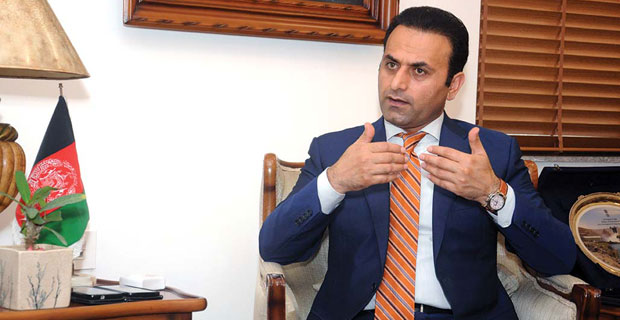“Educating girls doesn’t only mean educating the entire family but the whole nation”
We had last interviewed H.E. Dr Shaida Mohammad Abdali, Afghanistan’s Ambassador to India, in our October 2015 edition. This time the focus of our interview was centered around women’s empowerment, a key subject that Afghanistan is grappling with at the moment. Ambassador Abdali put things in perspective in this interview with Editor and Publisher Sayantan Chakravarty...
The Ministry of Education has been implementing the National Literacy Program to raise literacy rate to 60% by 2020 on national level which is now somewhere above 36% with more focus on girls and women to address the gender parity in literacy rate.
The average life expectancy of an Afghan woman is quite low. What efforts are being taken by the present Government to address this important issue?
In general, we can see tangible improvement in women’s status in Afghanistan comparing to 15 years back. According to Afghanistan’s Ministry of Public Health estimated life expectancy for women has risen to 62-64 as compared to the past which was estimated between 47-50 years. Improving Women’s situation in Afghanistan has been a priority for Afghan government; both the president and the chief executive have laid stress on this issue in their remarks on many occasions. The result from the latest health survey conducted by Ministry of Public Health shows that Afghanistan had made notable progress in health sector. As per the survey over 60 percent of the Afghan people now have access to basic health services, to increase access to health care services to 75 percent, the ministry is working to create 300 new health care centers. Steps are being taken to raise awareness among women about their health especially birth related issues and encourages them to use the health care provided by the government.











Comments.